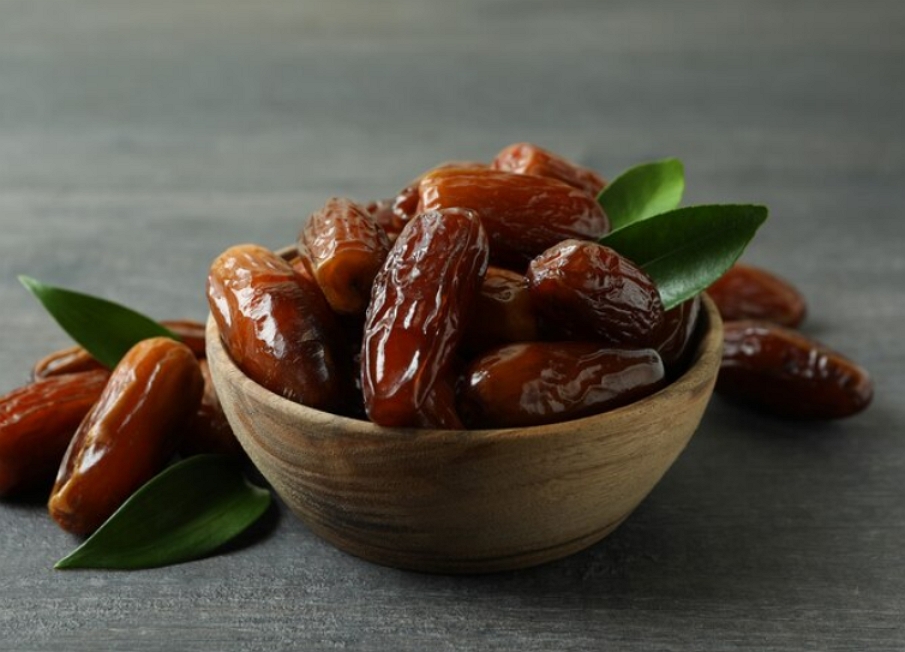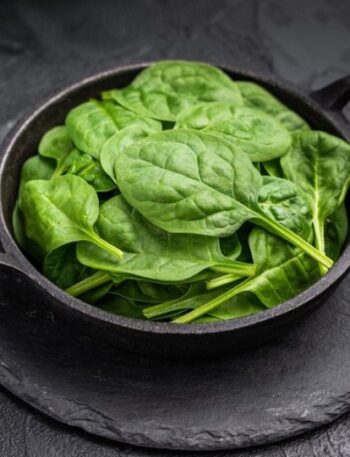Dates: Nature’s Timeless Sweetness.The sweet and chewy fruits of the date palm (Phoenix dactylifera),Dates are among the oldest cultivated fruits known to humanity. Revered across ancient civilizations and deeply embedded in religious and cultural traditions, dates have journeyed from the deserts of the Middle East to become a global culinary staple. Today, they are enjoyed not only for their rich, caramel-like flavor and versatility but also for their long shelf life and natural sweetness, making them a favorite natural alternative to refined sugar.
Historical Origins and Cultural Heritage
The history of dates stretches back over 6,000 years, with archaeological evidence indicating their cultivation as far back as 4000 BCE in Mesopotamia (modern-day Iraq). Over the centuries, date palms spread throughout the Middle East, North Africa, and parts of South Asia, often flourishing in arid desert environments where few other crops could thrive.
Dates are especially significant in the religious and cultural traditions of Islam, Judaism, and Christianity. As In Islam, dates are mentioned numerous times in the Quran and Hadith, and they hold a special place during Ramadan, when Muslims break their fast with dates and water, following the practice of the Prophet Muhammad. In Judaism, dates are one of the seven species mentioned in the Torah, and they are traditionally consumed during holidays like Tu Bishvat. In Christianity, dates have long been a symbol of prosperity and fertility, often appearing in Biblical references and religious rituals.
The Date Palm Tree: A Hardy Desert Symbol
The date palm is a tall, majestic tree that can reach heights of 75 feet, with a crown of long, feather-like fronds. It thrives in hot, dry climates with long summers and minimal rainfall, making it an ideal crop for desert agriculture. Date palms are dioecious, meaning male and female flowers grow on separate trees. To ensure fruit production, farmers typically hand-pollinate female trees with pollen from male flowers—a labor-intensive but necessary practice in modern date farming.
One of the remarkable traits of the date palm is its resilience. It can withstand high temperatures, saline water, and drought conditions, making it a vital crop in regions with limited water resources. The tree also has economic importance beyond its fruit; its leaves, fibers, and trunks have been traditionally used to make baskets, mats, ropes, and building materials.
Varieties of Dates
There are hundreds of date varieties grown around the world, each with its unique taste, texture, and appearance. They range from soft and sticky to dry and firm, offering something for every palate. Some of the most popular and commercially valuable varieties include:
- Medjool: Often called the “king of dates,” Medjool dates are large, moist, and rich in flavor, with a soft, chewy texture and a caramel-like taste. They are native to Morocco but widely cultivated in California, Israel, and Jordan.
- Deglet Noor: Known as the “date of light” for its golden color and translucent skin, Deglet Noor dates have a firmer texture and a slightly nutty flavor. They are a staple in North Africa and widely exported from Algeria and Tunisia.
- Ajwa: Grown mainly in Medina, Saudi Arabia, Ajwa dates are small, black, and highly prized for their unique taste and spiritual significance in Islamic tradition.
- Barhi: These dates are yellow and crunchy when fresh (known as “khalal” stage), turning soft and syrupy as they ripen. Barhi dates are sweet and delicate, enjoyed both fresh and dried.
- Zahidi: A semi-dry variety with a smooth golden skin, Zahidi dates are less sweet than Medjool and often used in cooking and baking due to their firm texture.
Each region often boasts its local varieties, suited to specific climates and consumer preferences, contributing to the biodiversity and richness of global date production.
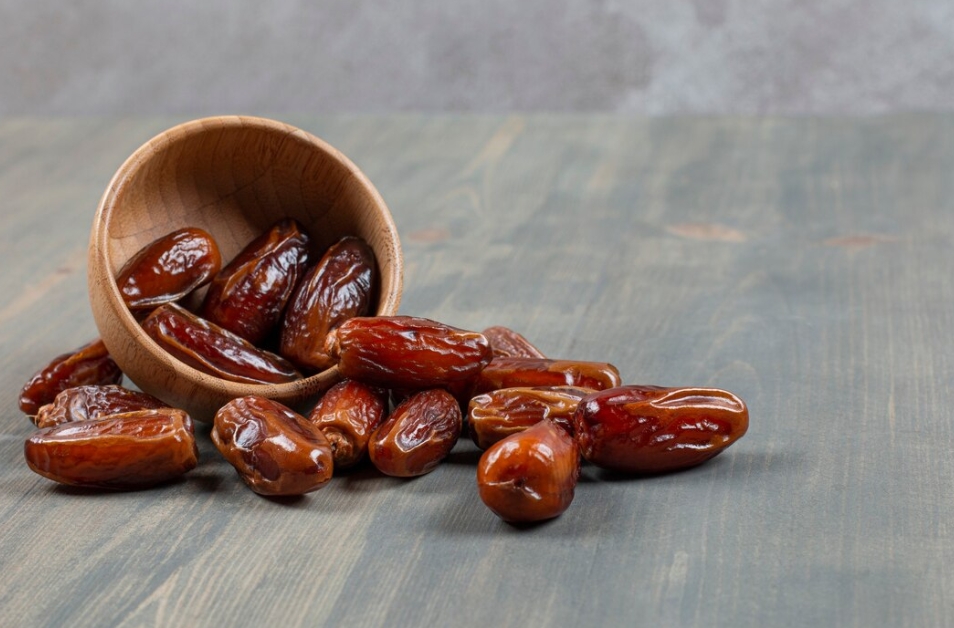
Global Cultivation and Leading Producers
The global date industry is centered around the Middle East and North Africa, with countries like Egypt, Iran, Saudi Arabia, Iraq, and Algeria being among the top producers. According to the Food and Agriculture Organization (FAO), Egypt consistently ranks as the world’s largest date producer, contributing more than 1 million tons annually.
In recent decades, date cultivation has expanded to non-traditional regions such as the United States (especially California’s Coachella Valley), Mexico, Australia, and even parts of southern Europe. These new growing areas often focus on high-end, organic, or specialty markets, meeting the growing global demand for premium-quality dates.
The adaptability of the date palm to marginal lands, coupled with increasing awareness of its economic potential, has prompted investments in desert agriculture and sustainable farming techniques. Governments and agricultural organizations in date-producing countries continue to invest in improving yield quality, pest control, and export infrastructure.
Culinary Uses of Dates
Dates are one of the most versatile fruits in the kitchen. Their rich flavor and natural sweetness make them a favorite ingredient in both traditional and modern cuisines. In many Middle Eastern and North African cultures, dates are eaten plain or stuffed with almonds, walnuts, or cream cheese for special occasions. They are also used to sweeten desserts, energy bars, smoothies, and baked goods without the need for added sugar.
In savory dishes, dates complement meats, grains, and vegetables. For instance, Moroccan tagines often include dates for a sweet counterpoint to spiced lamb or chicken. In Indian cuisine, dates are used in chutneys, sauces, and desserts like date halwa. In Western kitchens, chopped dates add depth to salads, cereals, and even artisanal breads.
Date syrup, or dibs, is another traditional product made by boiling down dates into a thick, molasses-like liquid. It is used as a natural sweetener and drizzled over pancakes, yogurt, or flatbreads. Date paste, made by blending soaked dates, is commonly used in baking or as a filling in pastries like ma’amoul and date rolls.
Economic and Social Importance
Dates play a crucial role in the economy and livelihoods of millions of people across arid regions. From small family farms to large commercial plantations, date farming provides employment in agriculture, processing, and trade. The industry also supports related sectors such as packaging, export logistics, and food manufacturing.
For many desert communities, dates are not just a source of income but a symbol of hospitality, tradition, and identity. Offering dates to guests is a customary sign of welcome and generosity in Arab culture, often accompanied by a cup of Arabic coffee.
In recent years, the rising demand for natural and organic foods has fueled interest in dates as a health-conscious snack, creating new opportunities for value-added products like organic dates, energy bars, stuffed dates, and gourmet date confections.
Environmental Considerations and Sustainability
Date palms are well-suited to sustainable agriculture in arid environments. Their ability to grow in saline and low-fertility soils, coupled with low water requirements compared to other fruit crops, makes them an environmentally resilient choice. However, monoculture farming and unsustainable water use in some regions have raised concerns about long-term ecological impacts.
Efforts are underway to adopt more sustainable date farming practices, such as drip irrigation, organic pest control, and intercropping with other plants. Promoting biodiversity within date orchards and preserving heirloom varieties are also essential for ensuring the resilience of this ancient crop in the face of climate change.
Conclusion
Dates are more than just a sweet treat—they are a symbol of endurance, heritage, and adaptability. From ancient trade routes to modern health-conscious diets, the date fruit has traveled through time and across continents, enriching cuisines, economies, and cultures. With growing awareness of sustainable agriculture and natural foods, dates are poised to remain a cherished fruit in both traditional and contemporary settings for generations to come.
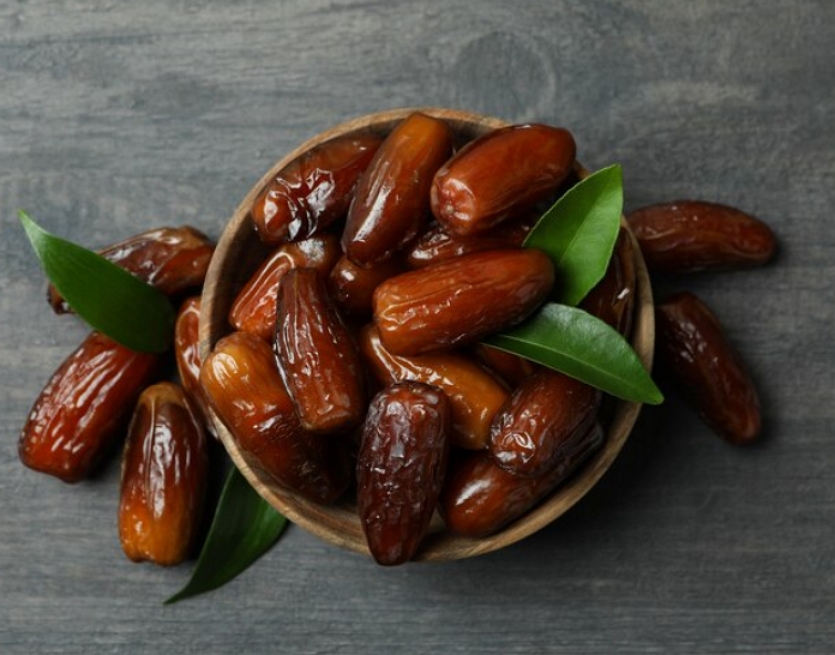
Health Benefits of Dates
1. Rich Source of Energy
Dates are an excellent natural source of energy due to their high carbohydrate content, primarily in the form of natural sugars like glucose, fructose, and sucrose. These sugars are quickly absorbed by the body, making dates a perfect snack to boost energy levels instantly. Athletes and individuals needing a quick energy refill often turn to dates for a natural, wholesome alternative to processed sugary snacks.
2. High in Fiber for Digestive Health
Dates are packed with dietary fiber, which is essential for maintaining a healthy digestive system. Fiber helps to regulate bowel movements, preventing constipation and promoting smooth digestion. Additionally, the fiber in dates acts as a prebiotic, feeding beneficial gut bacteria, which improves gut health and overall immune function.
3. Supports Heart Health
The potassium and magnesium in dates help regulate blood pressure and maintain heart health. Potassium is vital for controlling the electrical activity of the heart, while magnesium helps relax blood vessels, reducing hypertension risk. Moreover, the antioxidants in dates protect the heart by reducing inflammation and preventing the buildup of harmful cholesterol.
4. Natural Antioxidant Properties
Dates contain several powerful antioxidants, including flavonoids, carotenoids, and phenolic acid. These antioxidants combat free radicals in the body, reducing oxidative stress and lowering the risk of chronic diseases such as cancer, diabetes, and neurodegenerative disorders. Regular consumption of dates can contribute to overall cellular protection and longevity.
5. Improves Bone Health
Dates are a good source of minerals like calcium, phosphorus, potassium, and magnesium, all of which are critical for maintaining healthy bone density and strength. These minerals help prevent bone-related disorders such as osteoporosis and arthritis by supporting bone formation and reducing inflammation in the joints.
6. Enhances Brain Function
Dates may support cognitive health due to their antioxidant content, which helps reduce inflammation and oxidative stress in the brain. Studies suggest that regular consumption of dates can improve memory, concentration, and may even protect against neurodegenerative diseases like Alzheimer’s by reducing harmful plaque buildup.
7. Aids in Natural Labor
Traditionally, dates have been used to promote natural labor in pregnant women. Some studies indicate that consuming dates in the final weeks of pregnancy can help prepare the cervix for childbirth, potentially leading to shorter labor duration and reduced need for induced labor. This benefit is attributed to compounds in dates that mimic oxytocin, a hormone that triggers uterine contractions.
8. Regulates Blood Sugar Levels
Despite their sweetness, dates have a low to moderate glycemic index, meaning they do not cause rapid spikes in blood sugar when consumed in moderation. The fiber content also helps slow sugar absorption into the bloodstream. This makes dates a suitable snack option for people with diabetes when eaten responsibly.
9. Promotes Healthy Skin
The vitamins C and D in dates work as antioxidants that help maintain skin elasticity and prevent premature aging. They support collagen production, reducing wrinkles and fine lines. Additionally, the antibacterial properties of dates help keep skin free from infections and promote a clear, healthy complexion.
10. Supports Weight Management
Although dates are calorie-dense, their high fiber content helps promote feelings of fullness and reduce overeating. Eating dates as part of a balanced diet can curb cravings for unhealthy sweets by providing a natural source of sweetness and energy. This makes them a useful tool for those aiming to manage their weight healthily.
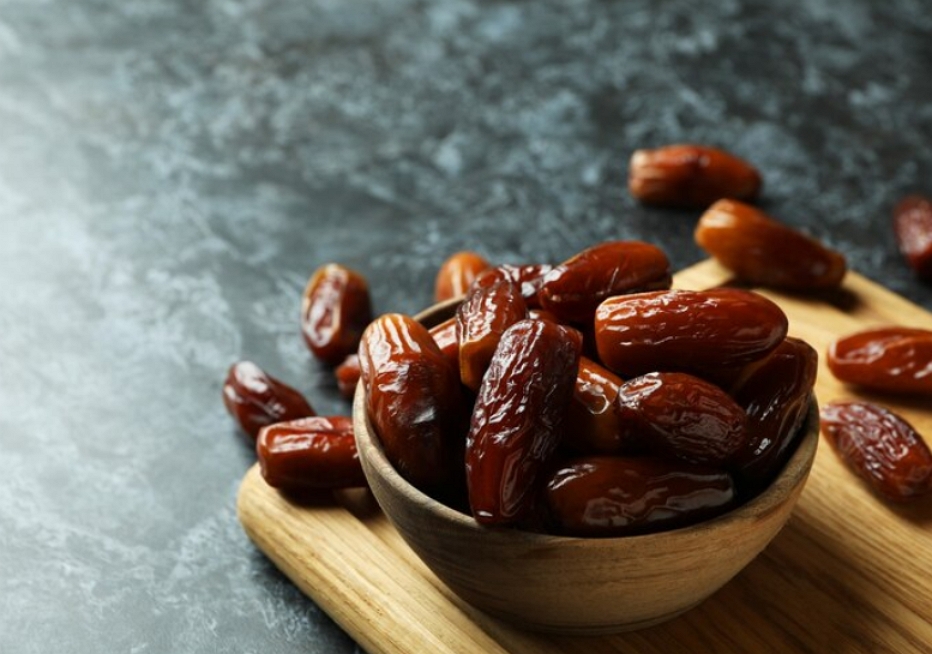
Frequently Asked Questions (FAQs) About Dates
1. What are dates?
Dates are the sweet fruits of the date palm tree (Phoenix dactylifera), which grows mainly in arid and semi-arid regions such as the Middle East and North Africa. These fruits have a chewy texture and a rich, caramel-like flavor. Dates have been cultivated for thousands of years and are prized for their natural sweetness, nutritional value, and long shelf life.
2. How are dates grown?
Dates grow on tall date palm trees that thrive in hot, dry climates. These trees require long summers with plenty of sunshine and minimal rainfall. The date palm is dioecious, meaning there are separate male and female trees. Farmers often hand-pollinate female flowers with pollen from male trees to ensure fruit production. Dates mature over several months, gradually turning from green to yellow, red, or brown depending on the variety.
3. What are the different varieties of dates?
There are many varieties of dates, each with distinct taste, texture, and size. Popular types include Medjool, known for its large size and soft, caramel-like flesh; Deglet Noor, which is semi-dry and commonly used for cooking; Ajwa, prized for its spiritual significance and unique flavor; and Barhi, which can be eaten fresh or dried. Each variety suits different culinary uses and preferences.
4. How should dates be stored?
Dates have a relatively long shelf life but should be stored properly to maintain their freshness. Fresh dates should be refrigerated and consumed within a couple of weeks, while dried dates can be kept at room temperature in an airtight container for several months. For longer storage, dates can be frozen without losing quality. Keeping dates away from moisture and heat is key to preventing spoilage.
5. Can dates be eaten raw or cooked?
Yes, dates are versatile and can be enjoyed both raw and cooked. Raw dates are a popular snack and are often eaten as-is. They can also be chopped and added to salads, cereals, or desserts. Cooked dates are used in baking, sauces, and traditional dishes like Middle Eastern tagines or Indian sweets. Date syrup and paste are other common forms used to sweeten foods naturally.
6. Are dates suitable for diabetics?
Despite their natural sweetness, dates have a low to moderate glycemic index, meaning they raise blood sugar levels slowly when eaten in moderation. Their fiber content helps slow sugar absorption, making them a better sweet alternative compared to refined sugar. However, diabetics should still consume dates in controlled amounts and consult healthcare professionals to manage their diet properly.
7. What nutritional benefits do dates offer?
Dates are rich in essential nutrients such as natural sugars, dietary fiber, vitamins (notably B-complex and vitamin K), and minerals like potassium, magnesium, and iron. They provide a quick source of energy and support various bodily functions. The antioxidants found in dates also help reduce oxidative stress, supporting overall health and wellness.
8. How can dates be used in cooking and baking?
Dates are highly versatile in the kitchen. They can be chopped and mixed into baked goods like cookies, bread, and cakes to add natural sweetness and moisture. Dates are also blended into smoothies or energy bars and used as a base for homemade natural sweeteners like date syrup or date paste. Their rich flavor complements both sweet and savory dishes, including stews and salads.
9. Do dates have any cultural or religious significance?
Dates hold deep cultural and religious importance, particularly in Islamic traditions. They are often eaten to break the fast during Ramadan, following the practice of the Prophet Muhammad. Dates are also mentioned multiple times in the Quran. In Jewish tradition, dates are one of the seven species symbolic of the land of Israel, often eaten during religious celebrations.
10. Are there any precautions or side effects of eating dates?
While dates are generally safe and healthy, eating them in excessive amounts may cause digestive issues such as bloating or diarrhea due to their high fiber content. Because they are calorie-dense and high in natural sugars, overconsumption may lead to unwanted weight gain. People with allergies to dates or related fruits should avoid them. Moderation is key to enjoying dates as part of a balanced diet.

